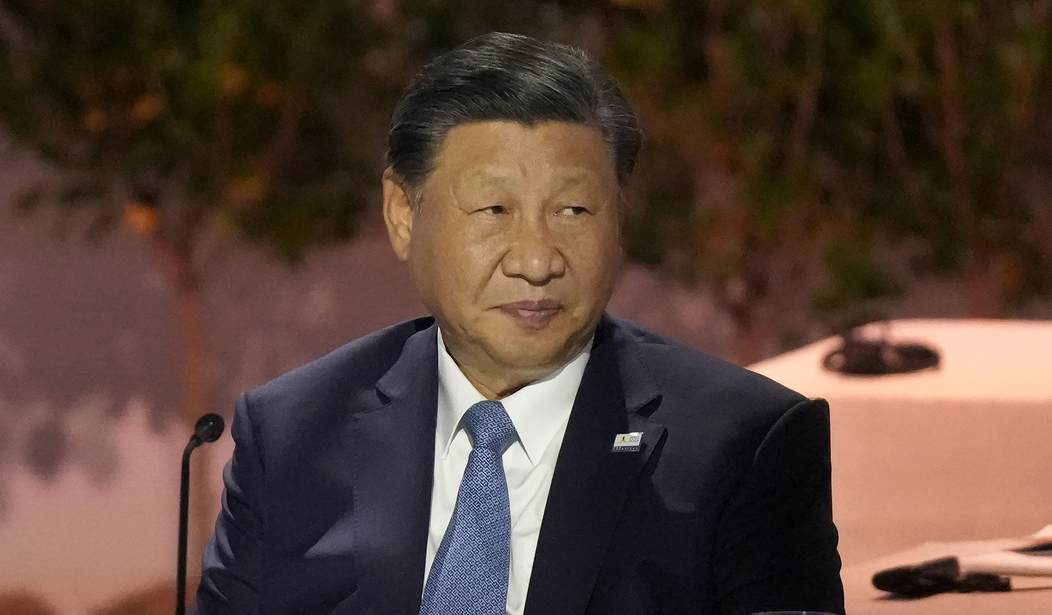Beijing has been stepping up its threats directed at Tokyo. This comes after Japanese Prime Minister Sanae Takaichi said that an attack on Taiwan would pose a “survival-threatening situation” for Japan that could trigger Tokyo to exercise its right to collective self-defense, amid increasingly assertive and frequent Chinese military drills around Taiwan and in the East and South China Seas.
China’s Ministry of Foreign Affairs (MFA) later demanded that PM Takaichi retract her “egregious remarks,” which she rightly refused to do.
China was wary of PM Takaichi before she was even sworn in. Recall that instead of congratulating her on her win, Beijing sent Tokyo a veiled warning. Beijing was waiting for the right moment to lash out at Japan in an attempt to stymie the Takaichi administration’s China-focused foreign policy agenda.
There are a few takeaways from this diplomatic row. But first, a recap of what China has done in retaliation is in order.
Most notably, the Chinese consul general in Osaka threatened to behead the Japanese prime minister. The Japanese government lodged a protest regarding the social media threat. Tokyo has yet to expel this “diplomat” (there is nothing diplomatic about China’s diplomats).
The mask slips — again. Just a few months ago, @xuejianosaka compared Israel with Nazi Germany. Now, he threatens Prime Minister @takaichi_sanae and the Japanese people. Time for Beijing to behave like the “good neighbor” it talks repeatedly about — but fails repeatedly to… pic.twitter.com/QslQqirtPO
— ジョージ・グラス駐日米国大使 (@USAmbJapan) November 10, 2025
SEE ALSO: Taiwan Remarks Spark Violent Threat From Chinese Consul to Japanese PM
New: Trump Accepts Xi Invite Amid Taiwan Tensions
Not long after, China’s MFA and People's Liberation Army Daily, Beijing’s official military newspaper, threatened to split open heads and turn Japan into a battlefield, respectively.
Chinese Ministry of Foreign Affairs is directly threatening Japan with absolutely unhinged fascist rhetoric: “Their heads will be split open and they will be covered in blood in front of the Great Steel Wall that over 1.4 billion Chinese people built with their own flesh and… pic.twitter.com/kF87BUsYmp
— Drew Pavlou 🇦🇺🇺🇸🇺🇦🇹🇼 (@DrewPavlou) November 16, 2025
These threats were paired with economic coercion. The Chinese government urged its nationals to avoid traveling to Japan. The Chinese embassy propagated this advisory via WeChat to Chinese nationals located on the island. Majority state-owned Air China also announced a reduction in flights to Japan.
This is not the flex Beijing thinks it is. For years, Chinese tourists have been nothing short of a headache for Japanese locals and the government. For example, Chinese tourists are notorious for harassing Nara Park's famous free-roaming deer. It’s no coincidence that 77 of the 88 foreigners injured by these “sacred” deer in 2017 were Chinese nationals.
China also announced that it will ban seafood imports from Japan, not long after it eased a 2023 ban. Taiwan immediately came to Japan’s side. Taiwan President Lai Ching-te posted a photo of himself eating sushi made with Japanese fish. Taipei lifted restrictions on all Japanese food imports and encouraged its nationals to support Japan by traveling there and purchasing more Japanese products.
きょうの昼食はお寿司と味噌汁です🍣👍#鹿児島産のブリと北海道産のホタテ pic.twitter.com/bww7iylzI4
— 賴清德Lai Ching-te (@ChingteLai) November 20, 2025
Taiwan has certainly not forgotten the time when the late Japanese Prime Minister Shinzo Abe — Takaichi’s mentor — showed his support for Taiwan by posing with Taiwanese pineapples, after China had banned pineapple imports from the self-governing island.
今日のデザートはパイナップル。とっても美味しそう。 pic.twitter.com/1uYuJX2qmY
— 安倍晋三 (@AbeShinzo) April 28, 2021
Armed Chinese Coast Guard vessels also entered Japanese territorial waters near the Japan-administered Senkaku Islands — a clear example of military intimidation.
We certainly can’t overlook Chinese state media outlets' calls for nuclear strikes on Japan, either.
China proceeded to take its grievances to the UN, with Chinese diplomats insisting that Articles 53, 77, and 107 of the UN Charter — also known as the “enemy state” clauses — give Beijing "the right to take direct military action" against “fascist or militaristic states such as Germany, Italy, or Japan.”
PRC embassy in Japan is practically invoking Article 53 on the "enemy state" in the UN Charter to issue a veiled warning to Japan of military action that can be undertaken by any UNSC P5 members (Beijing included) without the Council's authorization. https://t.co/4eHhSh25eY https://t.co/cTijNcenS8 pic.twitter.com/ZBJFksgcrY
— Collin Koh 🇸🇬🇺🇦 (@CollinSLKoh) November 21, 2025
These clauses allowing unilateral enforcement action are recognized as obsolete and have fallen out of use, given that these enemy states are UN members. But nevertheless, the Chinese Communist Party (CCP) continues to manipulate international law and intergovernmental organizations to further its political and economic objectives.
As usual, China is playing the victim while casting the actual victims, the free world, as the aggressors. This is a game that communist China has mastered, a form of outlandish gaslighting mixed with self-victimization. Beijing weaponizes historical memory of the Century of Humiliation (1839-1949) — a period when China lost large areas of its land to foreign powers, including Japan — to legitimize its responses to what it labels Western “bullying” and “aggression” — essentially anything the CCP believes challenges its regional and global ambitions.
Some might argue that China’s deflationary crisis, demographic troubles, growing unrest, and rising youth unemployment, among other issues, will push the CCP to use military force in the near future. It can also be argued that these domestic insecurities, along with the Trump administration’s eye on the Indo-Pacific and the PLA’s lack of combat experience, may lead Beijing to forgo conventional warfare.
What we can expect is for things to get worse before they get better. China will continue its unprecedented military buildup and saber-rattling in order to intimidate Japan and other U.S. allies in the region. Beijing will double down on its wolf warrior diplomacy and gray zone tactics like economic coercion, information operations, cyber-attacks (which could leave Japan’s defense systems and critical infrastructure vulnerable), and possibly cable-cutting activities. It’s about winning a war without having to fire a single bullet.
At the same time, the CCP is acting against its own interests. China’s open hostility toward Tokyo only works to boost the Takaichi administration’s foreign policy agenda, proving to the Japanese public — as well as to other countries in the region — Beijing’s willingness to aggressively punish a sovereign country for actions that the CCP views as undermining its agenda.
Although the overwhelming majority of the Japanese public already views China negatively, Beijing’s actions may push more individuals to support Takaichi’s plan to bolster Japan’s defenses and revise Article 9 of the constitution, which lays the groundwork for a purely defensive military.
Given that a full-scale armed conflict cannot be taken off the table, Tokyo, Washington, and regional allies will have to continue to boost deterrence. The Takaichi and Trump administrations appear to be committed to this.
Japan’s defense minister recently announced plans to deploy medium-range surface-to-air missiles to Yonaguni Island, 110 km (68.3 mi) from Taiwan’s coast. Beijing criticized this plan as “extremely dangerous,” likening the Takaichi administration’s (“right-wing forces”) actions to Imperial Japan’s ambitions (again, the weaponization of history).
The State Department reaffirmed Washington’s commitment to the U.S.-Japan alliance, and communication between President Trump and PM Takaichi remains strong and candid.
Aside from that, in response to the Chinese military’s intimidation, the U.S. and Japan conducted a joint military exercise over the East China Sea, featuring two B-1B bombers, 12 F-35As, two F-2s, and four F-15s. American, Japanese, Philippine forces also held the largest joint naval patrol in the South China Sea, a major geopolitical flashpoint, in years.
The Trump administration might want to consider re-deploying the Typhon missile system to Japan as soon as possible. Its SM-6 and Tomahawk missiles are capable of reaching a large portion of eastern China when launched from Japan.
It’s equally fundamental that we, Japan, and our other allies strengthen our collective capabilities to counter China’s gray-zone tactics that seek to sow chaos, compromise defenses, and weaken alliances. Unrestricted warfare is central to China’s military strategy.
China has long used its “diplomats” to steal intellectual property and spy. They also employ some of the most violent wolf warrior tactics, as the Japanese case demonstrates, and play a significant role in the CCP’s global transnational repression campaign and influence operations. Chinese embassies serve as CCP outposts. It is time for countries to begin expelling these “diplomats,” as Lithuania did.
And if China wants to be treated like a normal country, it will have to start adhering to its Five Principles of Peaceful Coexistence.
Editor’s Note: Do you enjoy RedState’s conservative reporting that takes on the radical left and woke media? Support our work so that we can continue to bring you the truth.
Join RedState VIP and use the promo code FIGHT to get 60% off your VIP membership!














Join the conversation as a VIP Member